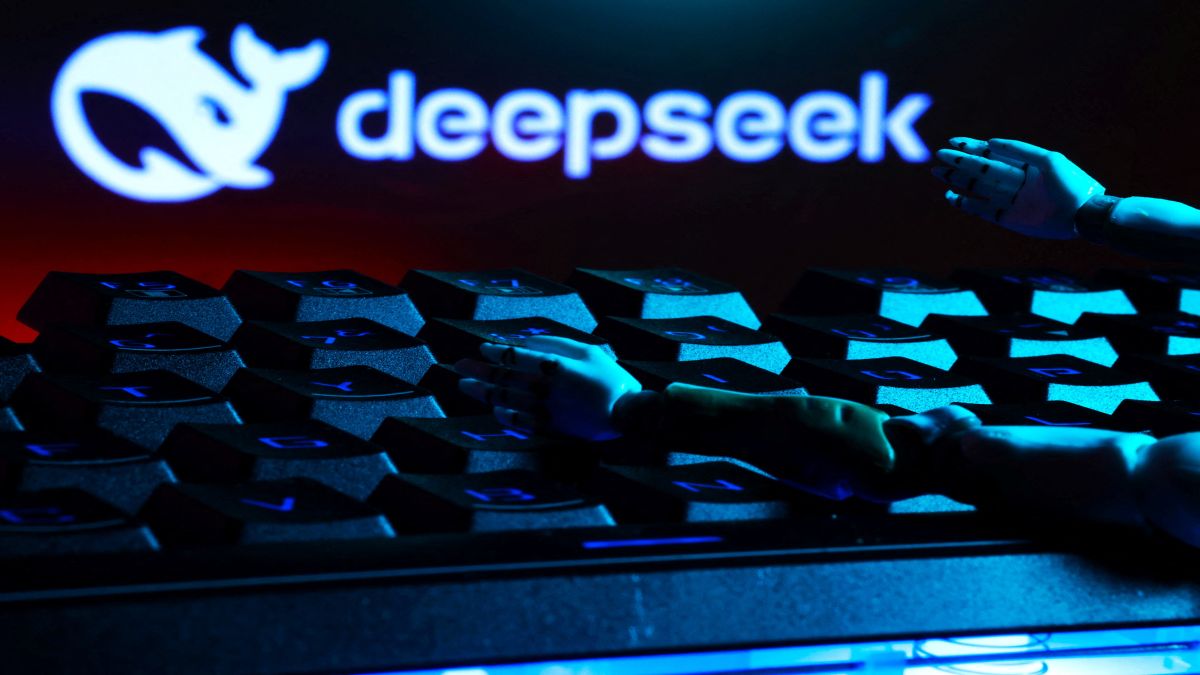Chinese start-up DeepSeek has caused quite an uproar over the past few days.
In January, the Artificial Intelligence firm headed by quantum trader Liang Wenfeng put out its latest model.
Researchers from the firm claimed that their model rivals the performance of Large Language Models (LLMs) from OpenAI and other tech giants.
They claimed it cost $6 million (Rs 51 crore) – at a fraction of the cost that Microsoft, Google and Open AI invested in their programmes.
But how does it compare with Open AI’s ChatGPT, Microsoft’s Copilot and Google’s Gemini?
Let’s take a closer look:
How do they compare?
DeepSeek
As per Business Today, DeepSeek has a free version for users that assists in problem-solving and general information.
Its paid subscription costs a mere $.5 (Rs 43) per month.
DeepSeek is great when it comes to creating code such as Python and Java) and solving complex equations.
However, it is unreliable when it comes to politically sensitive issues like Tiananmen Square.
According to Bloomberg, DeepSeek’s R1 model is also challenging ChatGPT and Gemini when it comes to several benchmarks including on maths, general knowledge and question answering.
The outlet noted that DeepSeek is ranked among the best Ais when it comes to the UC Berkeley-affiliated Chatbot Arena.
Open AI’s ChatGPT
ChatGPT too has a free version for users.
However, its paid subscription costs $20 (Rs 1,730) per month, as per Business Today.
ChatGPT outdoes DeepSeek when it comes to storytelling, jokes, and marketing copy.
When it comes to global events, ChatGPT is far handier. It also gives a far quicker feedback when it comes to recent happenings.
However, it continues to have issues when it comes to giving correct responses. Thanks to the data it was trained on, its inherent biases persist.
Google’s Gemini
Google has a free tier in its Gemini 1.5 and a paid tier in its Gemini Advanced.
The advanced model costs $22.45 (Rs 1950) per month.
As per Tech Target, Gemini is intended to respond to queries and analyse documents.
It also is capable of generating video, images and music.
But perhaps its best feature is to write and run Python code directly inside its interface.
The outlet praised Gemini for its polished, straightforward and simple User Interface (UI).
Microsoft’s Copilot
Microsoft too offers two versions of its AI – Copilot and Copilot Pro.
The Copilot pro is available for $23.11 (Rs 2,000) per month.
TechTarget noted that the Pro offers access to Microsoft’s latest AI models.
It added that Copilot comes integrated with Microsoft Office – giving it a unique functionality.
What do experts say?
Business Today recommended using DeepSeek for math, logical reasoning or coding.
It said the Chinese AI provided “more concise and technical answers.”
It recommended using ChatGPT if you prefer creativity and conversational flair or need the latest information on current events.
Wharton professor Ethan Mollick, writing on his One Useful Thing blog, laid out three top choices for most paid users – ChatGPT, Gemini and Claude.
He also noted that Grok by X.ai would be a great choice for those using X and that Microsoft’s Copilot has many of the same features of ChatGPT.
Mollick called DeepSeek “remarkably capable.”
He also put up a helpful comparative chart with a more technical breakdown.
Mollick said most people should look to the latest models with their own app.
“The problem is that most of the AI companies push you towards their smaller AI models if you don’t pay for access, and sometimes even if you do. Generally, smaller models are much faster to run, slightly less capable, and also much cheaper for the AI companies to operate,” Mollick noted.
Mollick also noted that not all AI models can check the web.
Mollick said Gemini, Grok, DeepSeek, Copilot and ChatGPT can search the web actively, while Claude cannot.
“This capability makes a huge difference when you need current information or fact-checking, but not all models use their internet connections fully, so you will still need to fact-check,” he noted.
Mollick said users ought to check out the free versions of all the AIs to get an idea of what they like.
At the end of the day though, he recommended the paid versions of ChatGPT, Claude or Gemini.
“The secret isn’t waiting for the perfect AI - it’s diving in and discovering what these tools can actually accomplish. Jump in, get your hands dirty, and find what clicks. It will help you understand where AI can help you, where it can’t, and what is coming next,” Mollick concluded.
TechTarget too recommended that users assess their own needs before choosing an AI.
It said it makes sense for those with technical workflows and within the Google ecosystem to use Gemini.
It recommended testing out all the different AIs with the same query and checking which response best suits your needs.
“While pricing is remarkably similar across many vendors, tiered systems with access restrictions and performance benefits can affect cost effectiveness. Evaluate each vendor’s tiers to ensure you can get the features you need at a reasonable price,” the piece noted.
With inputs from agencies


)

)
)
)
)
)
)
)
)



